CNN
—
It was after midnight in Malaysia when Secretary of State Marco Rubio dialed in to a call between President Donald Trump and NATO Secretary General Mark Rutte. The topic was Ukraine, and Rubio, on his first trip to Asia as Trump’s top diplomat, had just met face-to-face with his Russian counterpart, Foreign Minister Sergey Lavrov.
Rubio relayed to Lavrov that Trump was frustrated and felt that the US had put extensive time and effort into ending the war in Ukraine, with little progress from the Russians, according to a senior White House official familiar with the meeting.
In a somewhat hopeful readout to reporters, Rubio said Lavrov had shared “new and different” ideas about how to end the war, though nothing Rubio said that “guarantees a peace.” Asked directly what the administration’s policy on Ukraine was at that moment, Rubio was circumspect, reiterating the importance of engaging both sides and leaving the impression that more discussions with Russia could be on the horizon.
He gave no indication that the president was about to set in motion a major policy shift.
Now, joining the call on a secure line, Rubio listened as Trump broke the news to Rutte: The US was ready to back an effort to give Ukraine potentially billions of dollars in more weapons, made by the US but paid for by NATO.
After months of unsuccessfully trying to get Russia to agree to a ceasefire, including numerous face-to-face meetings between special envoy Steve Witkoff and Russian President Vladimir Putin, Trump was changing his strategy.
Rather than walking away from Ukraine, as many thought he might, Trump reengaged. The pivot reverses the brief pause in weapons shipments that Defense Secretary Pete Hegseth had green-lit a week prior. It also demonstrates Rubio’s deft approach to influencing foreign policy inside the administration.
As a senator, Rubio made his name as a foreign policy hawk and staunchly championed US support for Ukraine since the earliest days of Russia’s 2022 invasion. But since joining the administration, he has altered his tone, particularly as the administration’s more isolationist voices took center stage in the early months.
In interviews with CNN, more than a dozen people familiar with Rubio’s time in the administration, including current and former officials, describe him as a subtle operator whose stature has risen as the administration’s foreign policy has tacked toward positions he has long held — even while he has not been perceived as overtly pushing in that direction.
In the past month, as the US conducted military strikes on Iran’s nuclear facilities, pivoted toward militarily supporting Ukraine, and brought home US hostages from Venezuela in a large-scale prisoner swap, Rubio’s role atop Trump’s national security apparatus has been cemented.
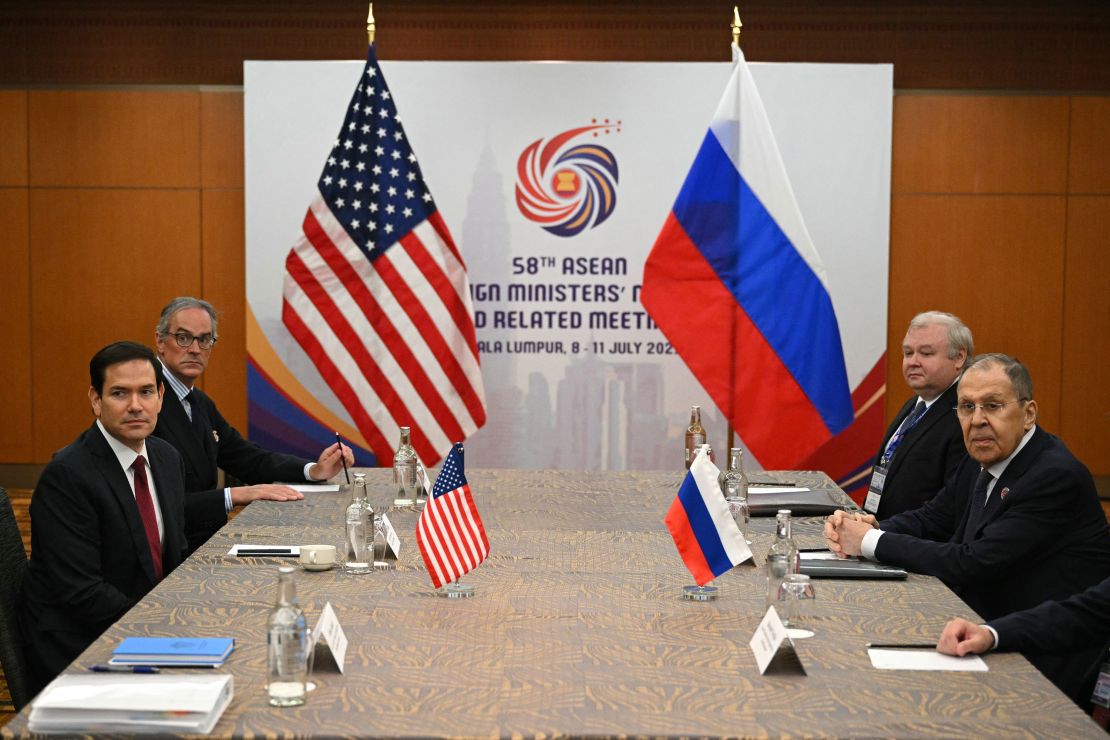
As layoffs coursed through the State Department last week, with the firing of more than 1,300 civil and foreign service officers, any hopes that Rubio would protect the department from the wider effort to downsize the government were dashed. The restructure was planned and executed by Rubio’s top leadership, though — a sign that he was at least able to fend off the approach that came with Elon Musk’s cuts to government earlier this year.
“He’s doing it on his terms, not on Elon’s,” said one person familiar with how the cuts unfolded.
Rubio has built his relationship with Trump in part by encouraging the president’s instincts instead of challenging them, even if they have been at odds with Rubio’s previous positions, current and former officials say.
“Rubio is good at presenting options and tools based on the current state of the situation,” said one person familiar with Rubio’s interactions with Trump, who like others agreed to speak on condition of anonymity. “He knows Trump’s end-state, supports it, and doesn’t try to control how he gets there. The problem with other senior officials who worked for Trump in the past is that they wanted to get Trump to a different ultimate objective.”
Rubio spends significant time at the White House, working at first from a secure facility in the basement in between meetings with Trump during the early months of the administration. Since Trump named him national security adviser in May, Rubio now has an office in the West Wing.
He’s continued to impress Trump with his TV interviews, something that first drew the president to Rubio, sources said, and he’s become Trump’s de-facto fix-it man on a variety of foreign policy fronts.
“When I have a problem, I call up Marco,” Trump told a crowd in the Rose Garden in April. “He gets it solved.”
Along the way Rubio’s amassed significant influence, becoming the first person since Henry Kissinger to serve as both secretary of state and national security adviser. That’s on top of technically running the National Archives and the US Agency for International Development, before it was dismantled and some of its roles folded into the State Department earlier this month.
“Marco Rubio has four jobs at once — that’s how much confidence President Trump has in him,” Vice President JD Vance told CNN in a statement.
Rubio is close allies with two of the most influential people in the West Wing — Vance and White House chief of staff Susie Wiles.
“It is supremely powerful,” one source close to the White House said of Rubio’s connection to Wiles.
Though they competed for the VP job, Rubio and Vance have since forged a close working relationship, which some administration officials partially attribute to the fact that their staffers come from similar circles, with many having worked at the Heritage Action for America, a conservative advocacy group. It’s one reason that the two are able to lean on each other when there are important meetings that one of them can’t attend, sources said.
“Marco is incredibly competent and reliable, and he’s also one of my closest friends in the administration,” said Vance.
Despite being the only Trump Cabinet nominee to be unanimously confirmed by the Senate, in the early days of the president’s second term many in Washington wondered whether Rubio was out of place. He clashed early on with Musk and appeared out of the spotlight as Witkoff, Trump’s close friend, flew around the world for talks in Moscow and the Middle East.
There was also the infamous Oval Office meeting with Ukrainian President Volodomyr Zelensky, when Rubio, slouching into the couch, appeared uncomfortable as Trump and Vance lit into Zelensky.
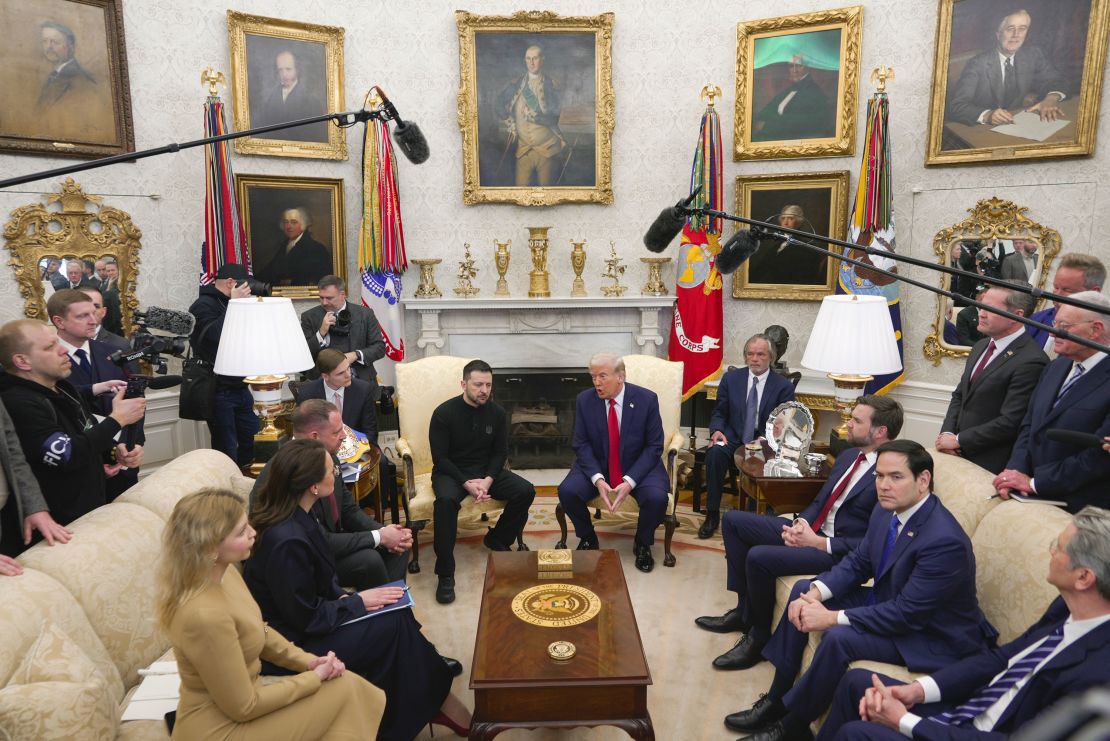
Trump and Rubio also didn’t start off with a strong personal relationship. The two first came into each other’s orbit during the 2016 presidential campaign primary, developing an adversarial relationship: Rubio called Trump a “con artist,” while Trump branded Rubio with one of his more lasting nicknames — “Little Marco.”
Still, Rubio was early in his support of Trump in 2024, endorsing him even before the primary was underway.
Last summer, as he weighed his pick for vice president, Trump began asking people who were close to Rubio whether he was actually Cuban, an indication he did not know a lot about the longtime Florida senator who is the son of Cuban immigrants.
“He didn’t know much about Marco,” said a source close to both men who was part of the discussion. “As far as Trump really getting to know him, it didn’t happen until after Marco was picked” as secretary of state.
It wasn’t until the two men started spending hours together every day at the White House that Trump developed a real fondness for Rubio, according to two people familiar with their relationship.
“From the beginning he stayed close. He went to the White House a lot, and the president was around him a lot,” one of the people said of Rubio. “They immediately bonded way more than they did before.”
One senior administration official said Trump and Rubio are both fans of Ultimate Fighting Championship, giving them something to connect on outside of the day-to-day policy conversations. In June, Rubio attended a UFC event in New Jersey with Trump.
Rubio also has a strong affinity for his family, but his wife is not eager to be involved in politics — a similarity that he shares with Trump, another source pointed out.
“There are few people in the administration that the president trusts as much as Rubio,” a White House official told CNN. “[Trump] empowers Rubio in a way he doesn’t do with a lot of other members.”
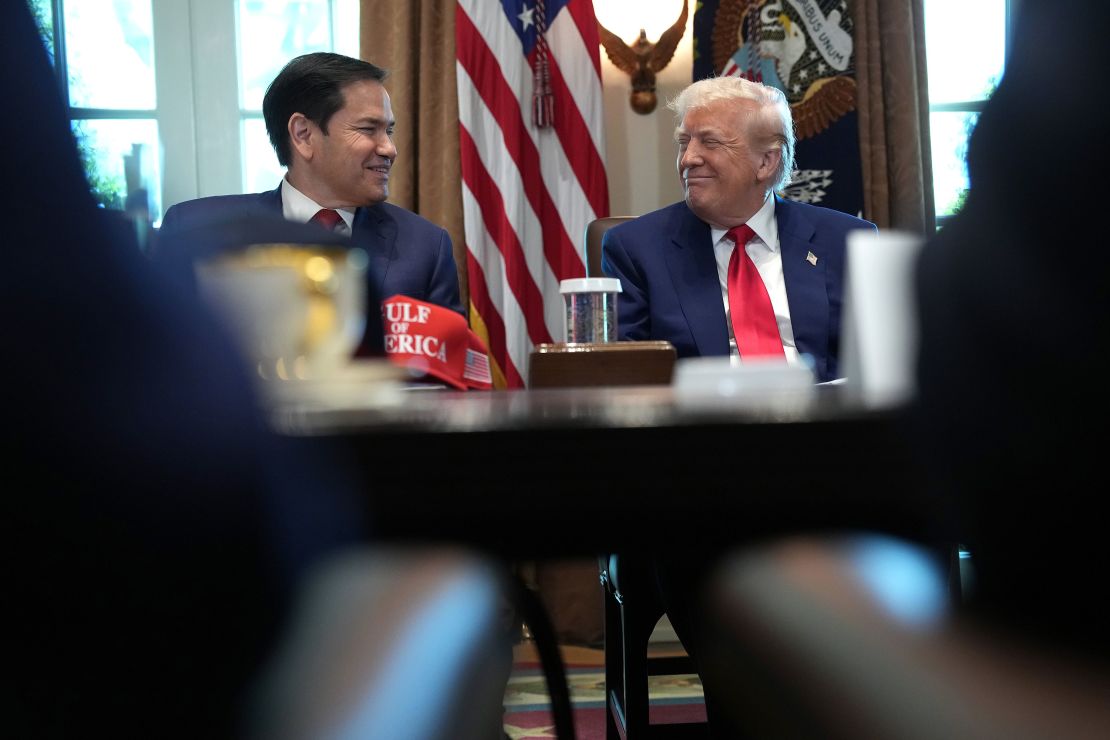
Rubio has shined in comparison to some of his national security colleagues. Secretary of Defense Pete Hegseth has led a chaotic Pentagon and made decisions without White House sign-off. Mike Waltz, Trump’s first national security adviser, was ousted in May after inadvertently adding a journalist to a signal chat to discuss details of a US military strike with top administration officials. And Director of National Intelligence Tulsi Gabbard found herself contradicted by Trump over Iran last month.
Meanwhile, Rubio has remained focused on some of Trump’s key priorities, particularly revoking the visas of students who protested Israel’s conduct in the Gaza war and deporting illegal migrants. Rubio’s long relationships in South America have paid dividends, particularly last week. A large-scale prisoner swap saw 252 Venezuelans who had been deported from the US and imprisoned in El Salvador sent back to their home country in exchange for 10 US nationals.
Rubio has long had a relationship with Salvadoran President Nayib Bukele and spoke with him directly and through trusted intermediaries to make the swap happen, multiple administration officials said.
He also appears to have kept a self-deprecating nature. Rubio recently ran into a friend at the White House, who noted he’d come a long way from his days as Little Marco.
“I am always one step away from being Little Marco again,” Rubio quipped with a smile, the person said.
That doesn’t seem likely given recent events.
Trump lavished praise on Rubio at a White House dinner with Senate allies on Friday night, saying there is never going to be anyone better at the job than he is.
“Who would have thought? We fought,” Trump said of Rubio, reflecting on their 2016 dynamic. “He was so tough — he was tough on that debate stand, right?”
Inside the State Department, Rubio’s prioritization of Trump comes as no surprise to rank-and-file diplomats, who understand the high stakes of serving both as national security adviser and secretary of state.
Still some officials who had widely supported Rubio are now bitter after the State Department’s firings last week, and worry the distribution of information is so tight that they are unable to contribute while inexperienced allies are picked to lead offices.
“When you come in with little to no background and this sort of preconceived idea that you know everything worth knowing, there is a real risk in missing really important things,” said a former senior State Department official, reflecting on the approach of some Trump allies who have taken on big roles in the department.
They are also concerned about how much connective tissue between the US and allies around the world might be lost because of the global impression that Trump does not respect career diplomats.
Senior US diplomats serving as acting ambassadors globally say it can be hard to get meetings because people in their country only want to engage with individuals who are deemed to be Trump allies.
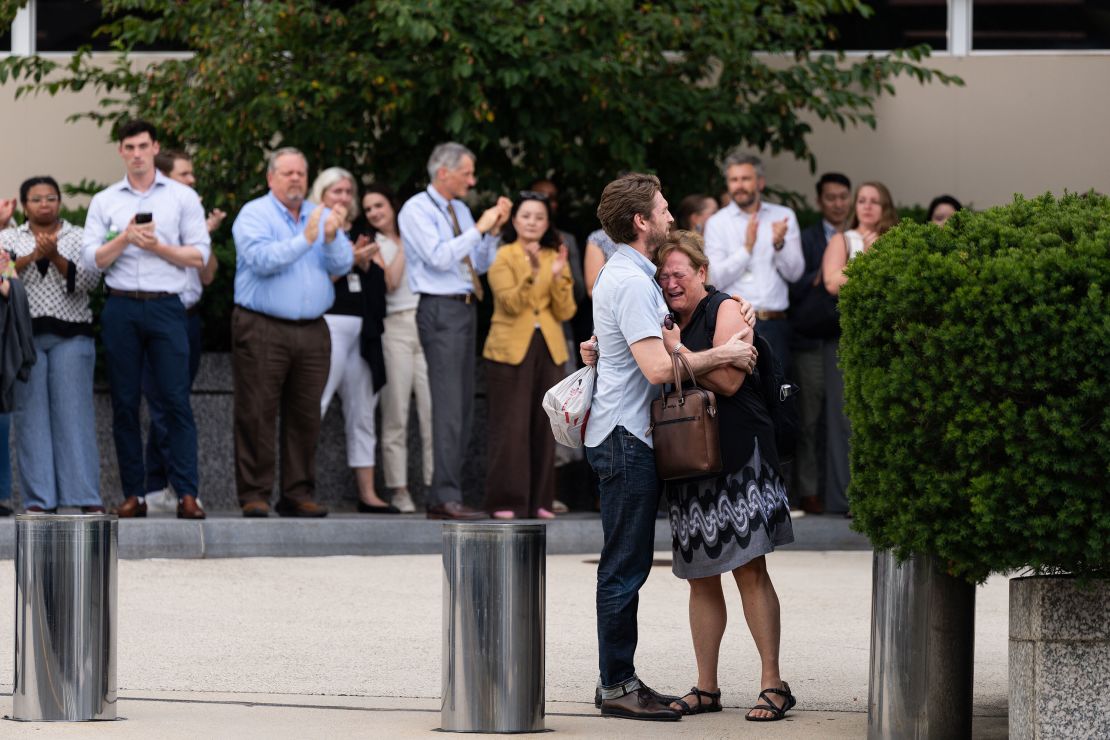
Rubio has also been unavailable at times.
Last month, Andriy Yermak, Zelensky’s top adviser, was in Washington and scheduled to meet with Rubio at the State Department. But during the time of the planned meeting, Trump scheduled a call with Putin. Rubio’s deputy, Chris Landau, took the Yermak meeting while Rubio joined the Putin call.
Earlier this year, foreign diplomats — including the new Russian ambassador to the US — gathered at the State Department for a reception with Rubio. Landau kept lengthening his introductory remarks as the group waited for Rubio to show up. He never did. He was held up at the White House.
“By and large his schedule is White House-driven, both with meetings the president has and the rest of the coordinating function that the NSC has,” said a senior administration official, adding that Rubio does still have meetings with his leadership team and foreign counterparts at the State Department.
At the White House, Rubio has trimmed the National Security Council to its smallest size in decades.
Having a more nimble NSC with fewer meetings better mirrors Trump’s proclivity to move quickly, administration officials argue. But its small size also contributed to recent confusion over the pause in weapons to Ukraine, some officials said.
“That’s the point of having a national security adviser,” one Trump ally remarked after CNN first reported that Hegseth had failed to inform the White House of the pause, resulting in a public reversal from Trump shortly after it was announced.
None of the sources faulted Rubio specifically, but they did note the purpose of the NSC is to ensure national security agencies work in sync to carry out the president’s agenda — something current and former officials, as well as diplomats from allied countries, have told CNN does not seem to be happening widely.
“If you can get a call into the White House or into Rubio’s chief of staff, that is the best way to know what is going on, otherwise it can be pretty challenging,” said one senior European diplomat.
White House press secretary Karoline Leavitt said that Trump has “immense trust” in Rubio to execute his foreign policy vision and that his dual roles allow execution of the president’s priorities “more efficiently across the administration.” She specifically pointed to the execution of the US strikes on Iran’s nuclear facilities last month, an operation that Rubio was intimately involved in.
In public remarks and during his TV interviews, Rubio can assume a combative tone in defending Trump and the policies the administration has pursued.
When Democratic Sen. Chris Van Hollen recently told Rubio during the secretary’s first appearance before the Senate Foreign Relations Committee that he regretted voting for him, Rubio quickly fired back, “Your regret for voting for me confirms I’m doing a good job.”
The day after the US carried out strikes on Iran, Rubio aggressively went after a reporter for pressing him on a US intelligence assessment that Iran’s supreme leader had not made a political decision to pursue a nuclear weapon.
“I know that better than you know that, and I know that that’s not the case,” Rubio said. “You don’t know what you’re talking about.”
In private settings, Rubio is known to use humor to bond with the people on the other side of the table.
When members of Trump’s national security team briefed Congress on the US military strikes against Iran’s nuclear facilities, it was Rubio who was clearly leading the team, sources familiar with the briefing said.
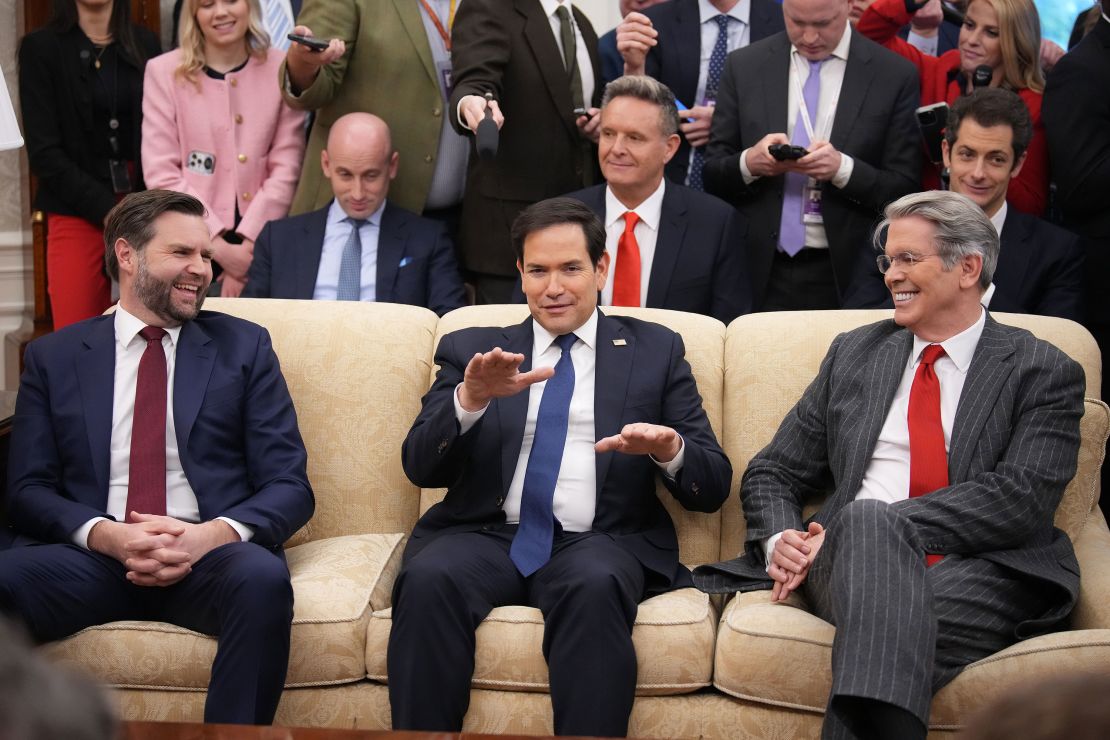
“It was the Rubio show,” said one source who was in the briefing, adding that Hegseth appeared to feel out of place. “He was joking and jovial, using the natural rapport he has with former colleagues.”
While the classified briefing is designed so that each speaker only gets a few minutes to present, Rubio, standing opposite his colleagues, cracked a joke that helped warm the room, where many senators were inclined to be critical of the rationale for the military strikes.
Republican Sen. Bill Cassidy recalled Rubio joking that it’s hard to tell a senator to speak for only a few minutes. “I’m no longer a senator,” Rubio quipped, according to Cassidy.
Earlier this year Rubio visited Canada for a G7 meeting of foreign ministers at a particularly tense moment: Trump’s tariffs were expected, world leaders were still wary of what Trump’s presidency might mean for alliances, and Trump had been repeating threats about making Canada America’s 51st state.
The group was looking out onto a body of water when Rubio asked which one it was. His Canadian counterpart named the river and Rubio remarked that it looked like an ocean and that maybe it should be renamed the Gulf of Canada, said a source familiar with the matter.
Rubio’s Canadian counterpart did not see the humor, but the rest of foreign ministers broke out into laughter, the source said.
CNN’s Zachary Cohen, Jennifer Hansler, Alayna Treene, Jeremy Herb and Annie Grayer contributed to this report.

